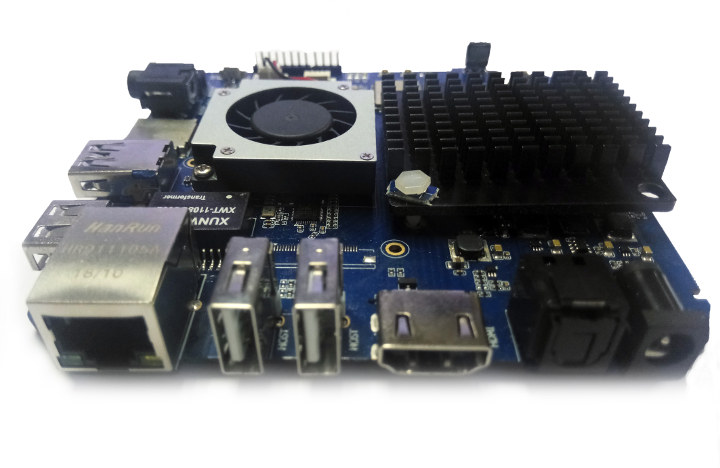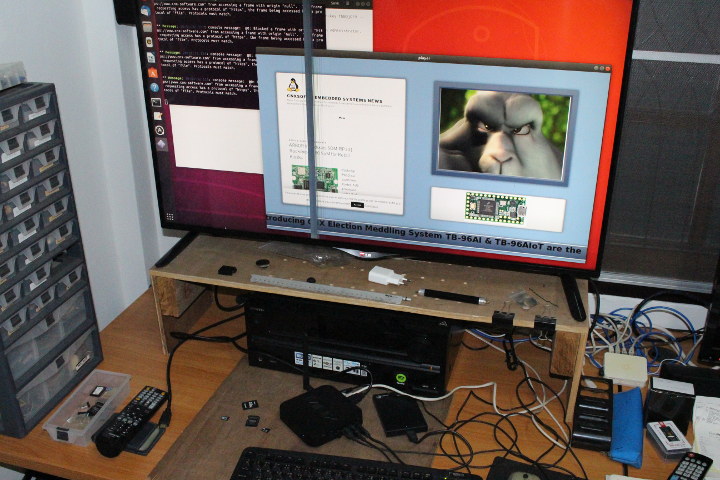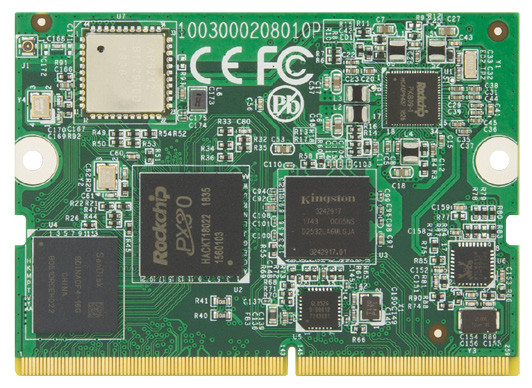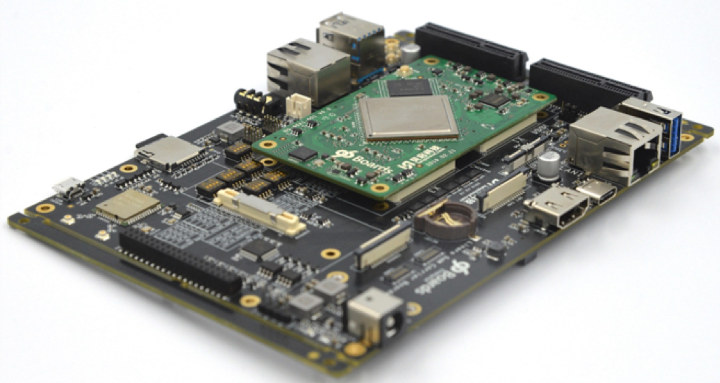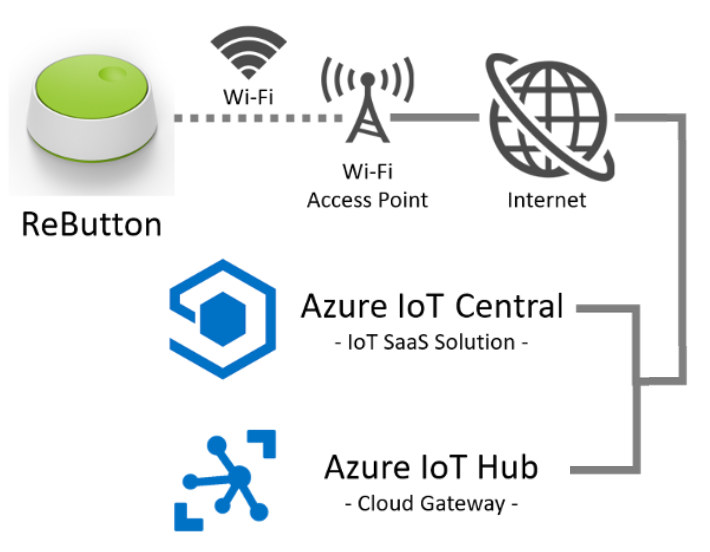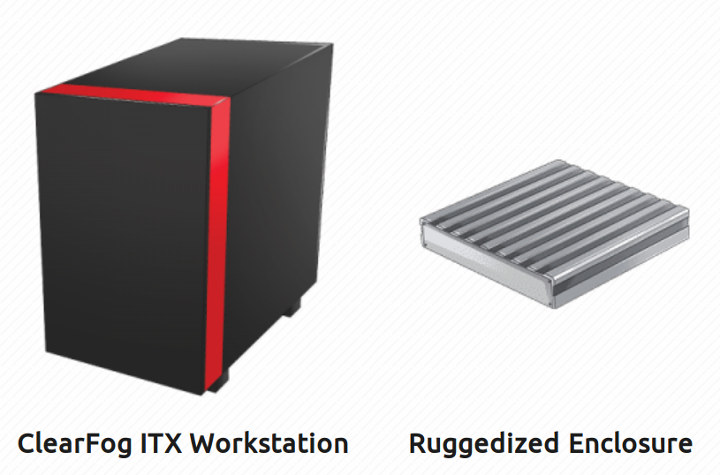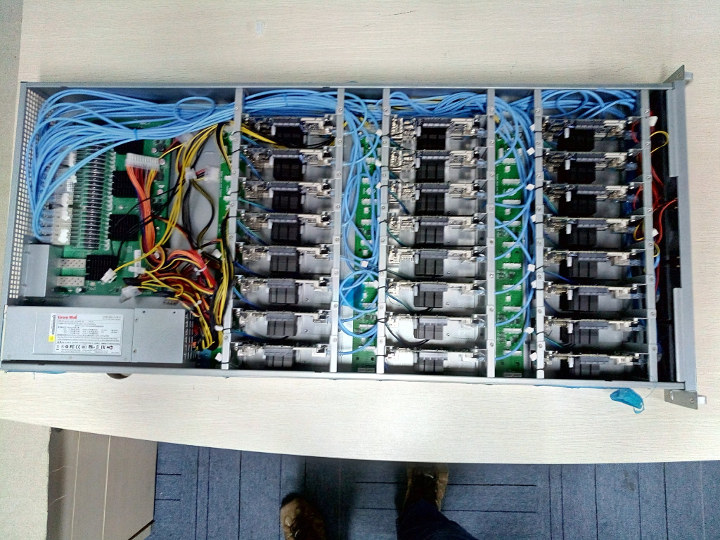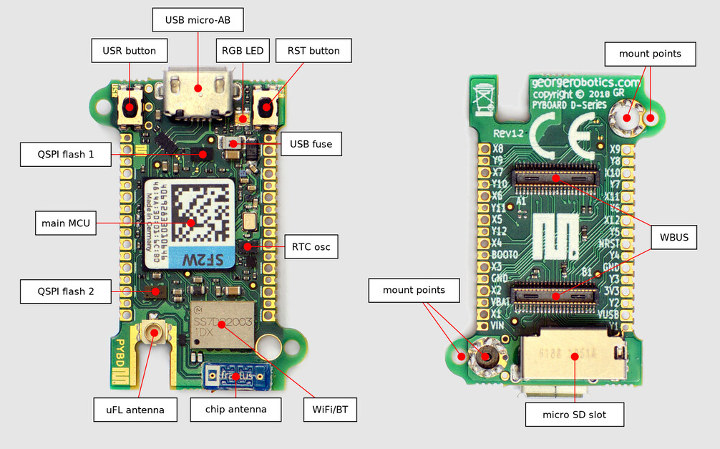We’ve reported about the first Amlogic S922X TV box – Beelink GT1-K – last week, and unsurprisingly more are coming starting with Ugoos AM6. The former appears to the passively cooled, but Ugoos AM6 will include a fan for cooling providing optimal performance for the new Amlogic processor. While we do not have photos of the enclosure so far, Ugoos share with us some pictures of the board and the specifications. Ugoos AM6 specifications: SoC – Amlogic S922X hexa-core big.LITTLE processor with 4x Arm Cortex A73 cores, 2x Arm Cortex A53 cores, Arm Mali-G52 MP6 GPU; 12nm manufacturing process System Memory – 2GB LPDDR4 RAM (3GB/4GB optional) Storage – 16GB eMMC flash (8GB/32GB optional), micro SD card slot Video Output HDMI 2.1 up to 4K @ 75 Hz with CEC, HDCP 2.2, HDR support 3.5mm AV port for composite video (and stereo audio) Video – 4K UHD H.265/VP9/AVS2 video decoding […]
MINIX NEO Z83-4U Review – Ubuntu 18.04, Kodi 18, and Xibo Digital Signage
MINIX NEO Z83-4U is a Cherry Trail mini PC pre-loaded with Ubuntu 18.04. I received a sample a little while ago, and in the first part of NEO Z83-4U review I checked out the specifications and hardware that appears to be exactly the same a MINIX NEO Z83-4 Pro mini PC, except for the eMMC flash capacity that has increased from 32GB to 64GB. Since the mini PC comes with an older Atom X5-Z8350 processor, and is designed for commercial applications, I’ve decided to make a slightly different review. We already now how the system is supposed to perform thanks to benchmarks with NEO Z83-4 mini PC running Windows 10 Pro, so I’ll just check the main features are working as expected in Ubuntu 18.04, test audio & video support in Kodi 18.1, and try out Xibo Linux open source digital signage CMS and player on the mini PC. MINIX […]
ARBOR Introduces SOM-RP301 Rockchip PX30 SoM for Retail Kiosks
Rockchip PX30 is a quad core Cortex-A35 processor with a dual VOP (Video Output Processor) in order to drive two independent displays, that has low power consumption, low thermal requirements, and that we previously found in some car infotainment systems. But the processor is also suitable for other applications, and ARBOR Technology recently launched SOM-RP301 system-on-module based on the PX30 processor, and specifically designed for fanless retail kiosks such as electronic restaurant menus, automated currency exchange machines, ticketing kiosks and more. SOM-RP301 system-on-module specifications: SoC – Rockchip PX30 quad core Cortex-A35 processor @ 1.5 GHz with Arm Mali-G31 MP2 GPU System Memory – 1GB LPDDR3 (Up to 4GB as option) Storage – 16 GB eMMC flash Connectivity – Fast Ethernet transceiver, 802.11 b/g/n/ac WiFi 5 + Bluetooth 4.0 module Edge Connector – SO-DIMM connector with Display – LVDS or MIPI DSI Camera – MIPI CSI RX interface with 8MP ISP […]
TB-96AI & TB-96AIoT are the First 96Boards Systems-on-Module
First introduced in 2015, 96boards specifications define mechanical, electrical, and software specifications for single board computers, but in 2017 Linaro asked companies to provide some feedback on what they’d like for a 96boards system-on-module standard. And for the first day of Linaro Connect Bangkok 2019, the 96Boards SoM specifications have now been announced, together with the introduction of Rockchip RK3399Pro powered TB-96AI and Rockchip RK1808 based TB-96AIoT, the first compliant 96Boards SoMs, and corresponding 96Boards SoM Carrier Board. 96Boards System-on-Module Specifications Two 96Boards SoM specifications have been unveiled with the Compute Module Specification and the Wireless Specification. The 96boards Compute Module Specification defines a SoM with up to four 100-pin connectors, but only one is mandatory (X1), and two form factors are specified: SOM-CA (85 x 50 mm) and SOM-CB (50 x 50 mm). List of signals associated to each connectors: X1 – SoM managements, 1x UART, 2x I2C, 1x […]
ReButton WiFi Button Features MXCHIP EMW3166 Module
We’ve previously covered WiFi buttons based on ESP8266 processor, but Seeed Studio has just launched ReButton “developer device” that serves the same purpose but features STM32 based MXCHIP EMW3166 WiFi module instead, exposes one I2C grove connector, and is preloaded with sample firmware that triggers Azure IoT Central or Azure IoT Hub. ReButton hardware specifications: MCU module – MXCHIP EMW3166 module including STM32F412 Arm Cortex M4F MCU @ 100 MHz with 256KB SRAM, 1MB+2MB SPI Flash, and Cypress BCM43362 WiFi chip Input – 1x Push button Output – 1x RGB LED Extension – 1x I2C Grove connector (3.3V I/O) Debugging – 1x SWD pads, 1x UART for debugging Misc – 1x Jumper switch Power supply 2x AAA Alkaline batteries (LR03) Internal supply voltage – 3.3V Dimensions – 70 x 70 x 25mm The ReButton comes preloaded with an Arduino sketch that handle key presses and send a trigger to Azure […]
ClearFog ITX Workstation May be the Ultimate Arm Developer Platform
Most people are still doing Arm development work on x86 platforms, because there aren’t really any viable equivalent in the Arm world. Current options include Edge Server SynQuacer E-Series (aka Linaro Developer Box), a $1,250 Arm PC shipping with a 24-core Arm Cortex-A53 processor, 4GB RAM (by default), a 1TB hard drive, and Geforce GT710 graphics cards, as well as the much more powerful GIGABYTE ThunderXStation workstation with up to two Cavium ThunderX 32-core Armv8 processors, 32GB to 128GB RAM configuration, NVMe storage, and more. The former was a good place to get started, but the Arm Cortex-A53 cores clicked at 1GHz provided limited performance, and the GIGAGYTE workstation costs over $12,000, so it’s only suitable for projects with specific needs and/or a high expected return on investment. That’s why there will be a discussion about Designing a next generation ARM Developer Platform at Linaro Connect 2019 next week in […]
PINE64 Plans to Move their Website on a 24-node RockPro64 Cluster
Boards’ clusters are always fun to see, and PINE64 has shared pictures of two RockPro64 clusters with respectively 48 and 24 boards neatly packed into partially custom enclosures. The 48-node cluster will feature a total of 288 cores, including 96 Arm Cortex-A72 cores and 188 Cortex-A53 cores, as well as 192GB of LPDDR4 RAM. Low cost development boards may be seen as toys by some, so it’s interesting to learn that PINE64 plans to move their complete website infrastructure including the main website, a community website, forums, wiki, and possibly IRC on the 24-node cluster, while it seems the 48-node cluster may be used for their build environment. The company has just completed the assembly of the clusters, and did not disclose the full technical details just yet. However, a progress report may be written in due time. Once the migration is done, and everything works as it should, it […]
Pyboard D-series Wireless Micropython Boards Launched for $56 and Up
We’ve already mentioned the latest Pyboard D-series board at the beginning of February after it was introduced at FOSDEM 2019. The board comes with a powerful STM32F7 Arm Cortex-M7 microcontroller, as well as a WiFi and Bluetooth wireless module. The news is that the board has now launched for £43.80 in.c VAT ($56) and up. A better price comparison with other boards is normally achieved by comparing the ex. VAT price of £36.50 or about $48. That may still feel a bit pricey to some, but there was enough interest to snatch all available “PYBD-SF2-W4F2” boards, and this specific board is out of stock at the time of writing. However, there are multiple variants of the board and PYBD-SF3-W4F2 is still in stock for £58.20 inc. VAT (~$76.5). We’ve now got the full Pyboard D-series “PYBD-SF2-W4F2” specifications: MCU – STMicro STM32F722IEK Arm Cortex M7 microcontroller at 216 MHz with 256KB […]


